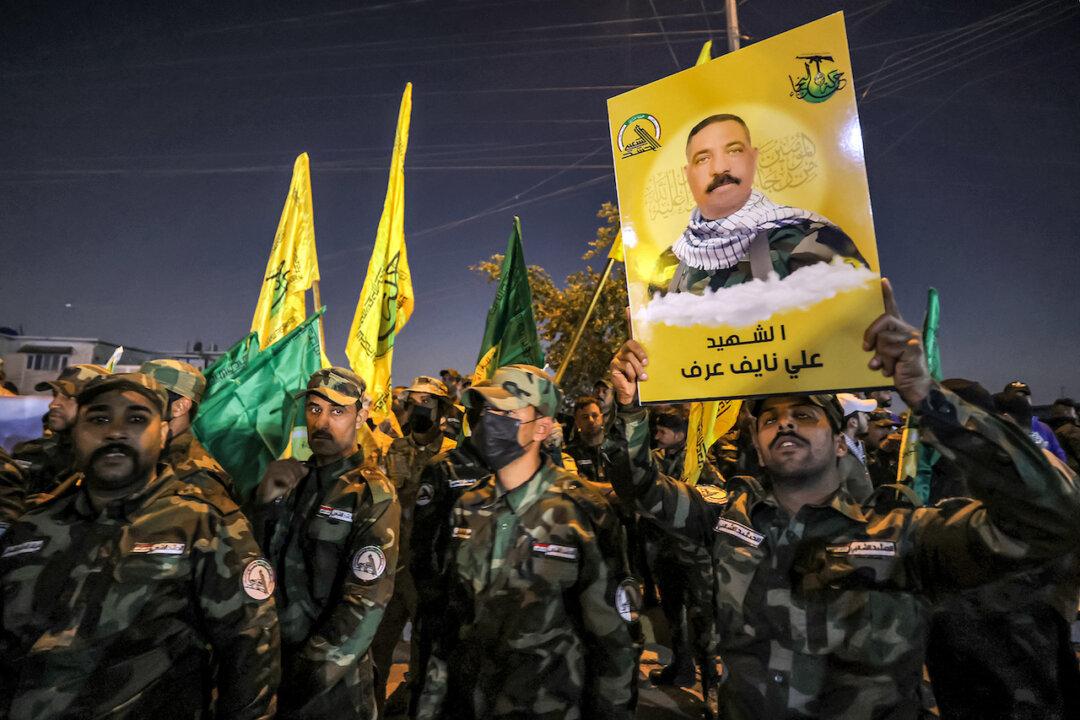A U.S. airbase in Erbil, northern Iraq, was struck by a drone fired by Kata'ib Hezbollah (KH), an Iran-affiliated terrorist group, on Dec. 25, 2023. The attack, which resulted in three U.S. casualties, led to retaliatory airstrikes on the same day.
Amid the ongoing Israel–Hamas conflict, the attack was one more example of the back-and-forth clash between the United States and anti-Israel Islamist militias and terrorist organizations in the region—a clash that has not only further complicated U.S–Iran relations, but has also complicated the geopolitical stakes of various countries in the region, according to Middle East geopolitics experts.





